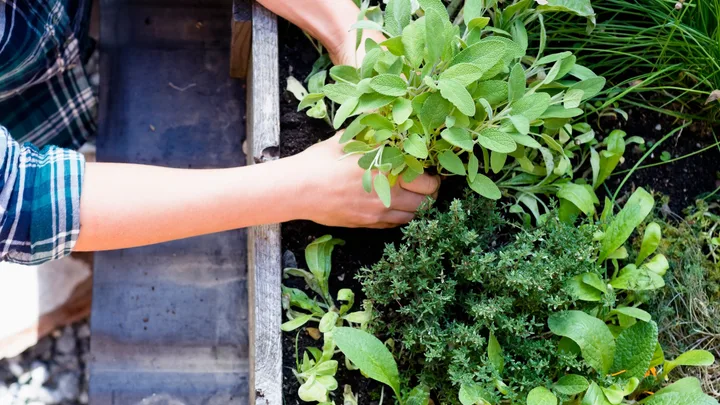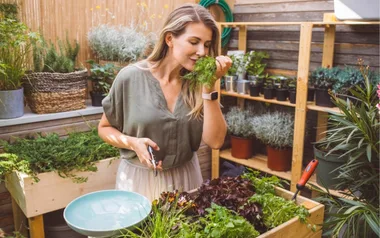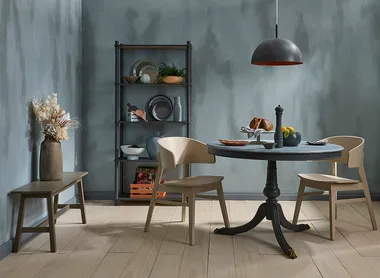If you haven’t gardened before but are keen to give it a go, herbs are a great place to start. They are incredibly easy to grow and packed with antioxidants and nutrients – plus you’ll always have fresh leaves on hand to add to your salads and cooking. Herbs are pretty resilient. Give them a decent patch of soil, some water and lots of sunshine, and they’ll stick around for quite some time.
Growing herbs from seed is easy and affordable, but if you’re new to this, it might be less intimidating to start with seedlings. Pop into your local garden centre to grab the selection you’re after and buy a couple of seed packets too. Get the soil ready by digging in organic matter such as compost or sheep pellets, plant the seedlings, then sprinkle a few seeds around them to get the ball rolling.
Inside or out?
Herbs grow well indoors, so get creative with planters (filled with a quality potting mix) to create an indoor edible garden. If you’re short on space, jump on the microgreens trend by planting herb seeds in pots and harvesting young shoots to add to salads. They’ll flourish on a sunny windowsill.
If you’d like to establish an outdoor kitchen garden, choose a sunny patch close to the kitchen for easy access when you’re cooking. Plant tomatoes, lettuce, spinach and mesclun, alongside herbs to grab all your salad essentials in one fell swoop. Keeping super-thirsty herbs such as mint, coriander and basil together makes sense too.
For newbie gardeners, keeping it simple is a good way to go. Here, we’ve suggested common herbs as ideal starter plants for your herb garden and, as your confidence grows, you can begin experimenting with more varieties.
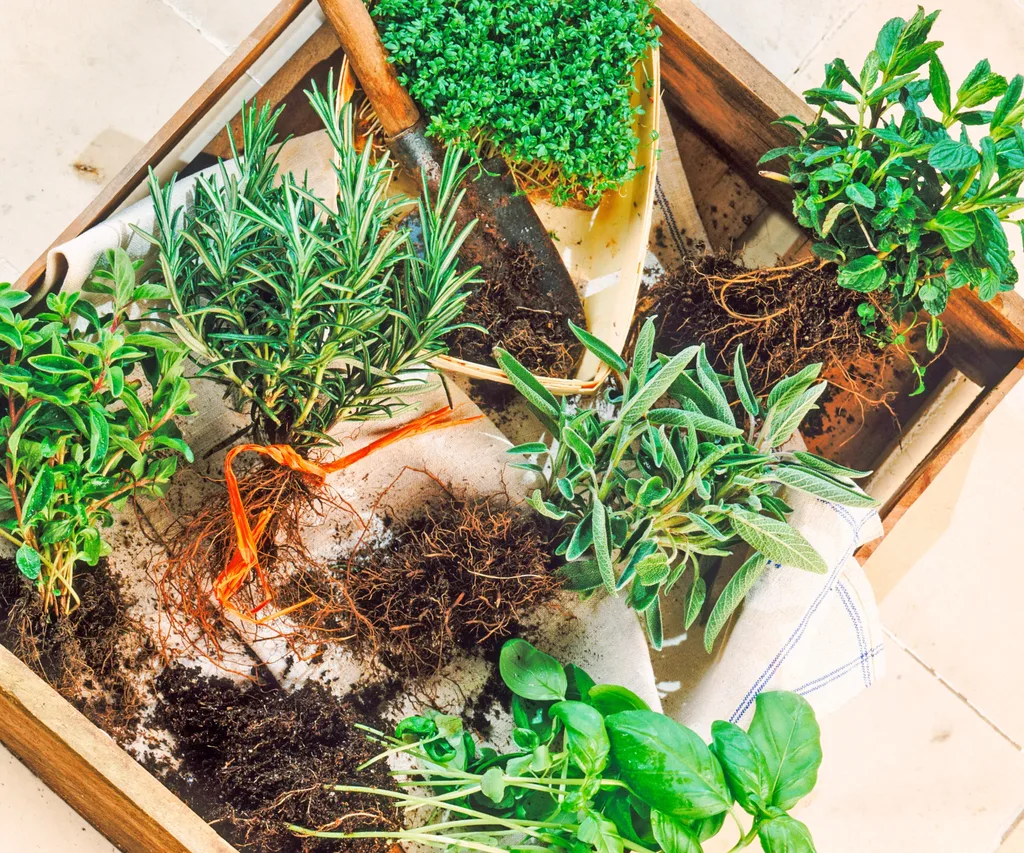
Mint
Mint prefers sunshine but will tolerate some shade and needs regular watering. This perennial is easy to grow but prone to rust disease. When this strikes, it’s best to cut the plant down to the ground and bin the clippings – it’ll soon grow back. Planting a couple of mint plants in different parts of the garden will ensure you always have some on hand. However, once established, this herb is extremely difficult to get rid of and can spread like crazy – grow in pots or containers if you want to keep it under control.
Coriander
This herb grows easily from seed in pots or garden beds and enjoys the shade rather than full sun. Plant in rows 30cm apart, pushing the seed carefully into the soil to about 6mm deep. Give it a light water initially, then let it go nuts. Thin the seedlings when about 1.5cm high and keep them well watered as this herb thrives on fluids. It will go to seed if it dries out.
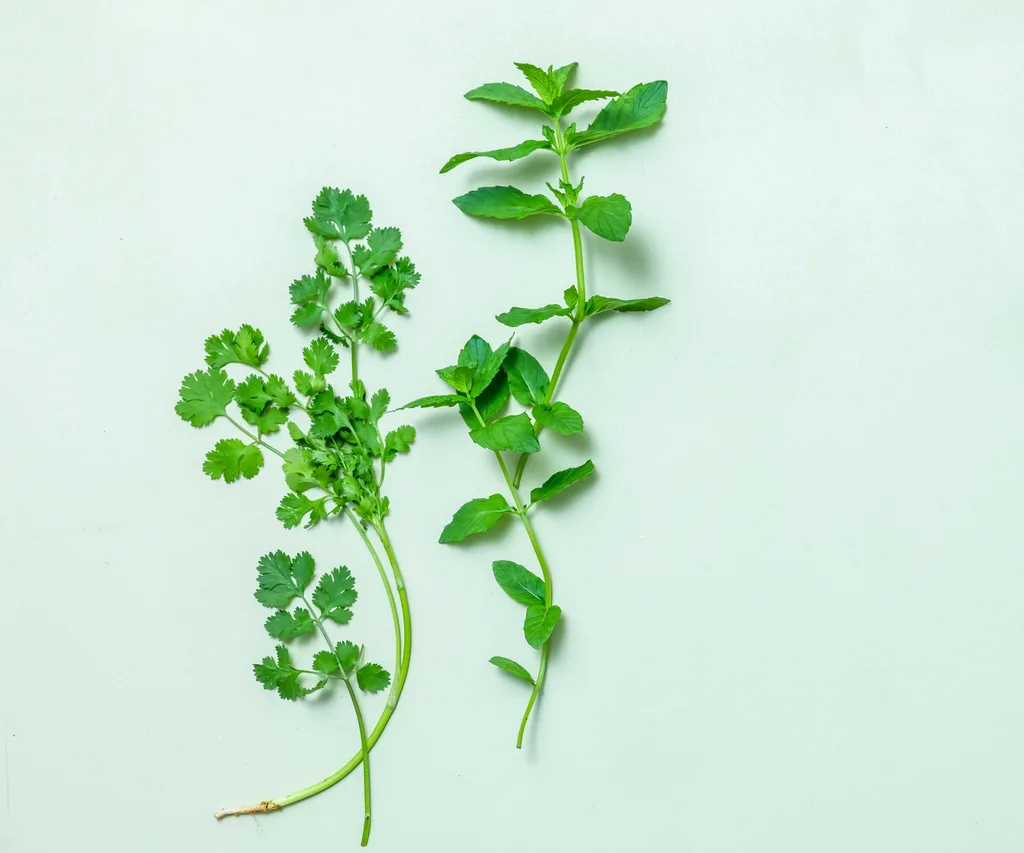
Flat-leaf parsley
This tender herb (also called Italian parsley) prefers shade and can be grown easily from seed sown directly into the soil, but be patient as germination can take a month (or three). If you’re big on this herb, you can start the seeds indoors for the first two months and transplant them outside to grow larger plants. Parsley is rich in vitamins A, C and K, and improves digestion and immune function.
Thyme
Thyme is a perennial herb (ie it will grow back each year, for a few years at least), which does best in well-drained soil in full sun. Its tiny white, pink or red blooms provide valuable food for bees and also make this plant a really pretty groundcover option. Plant in pots or along paths for an aromatic, Mediterranean effect.
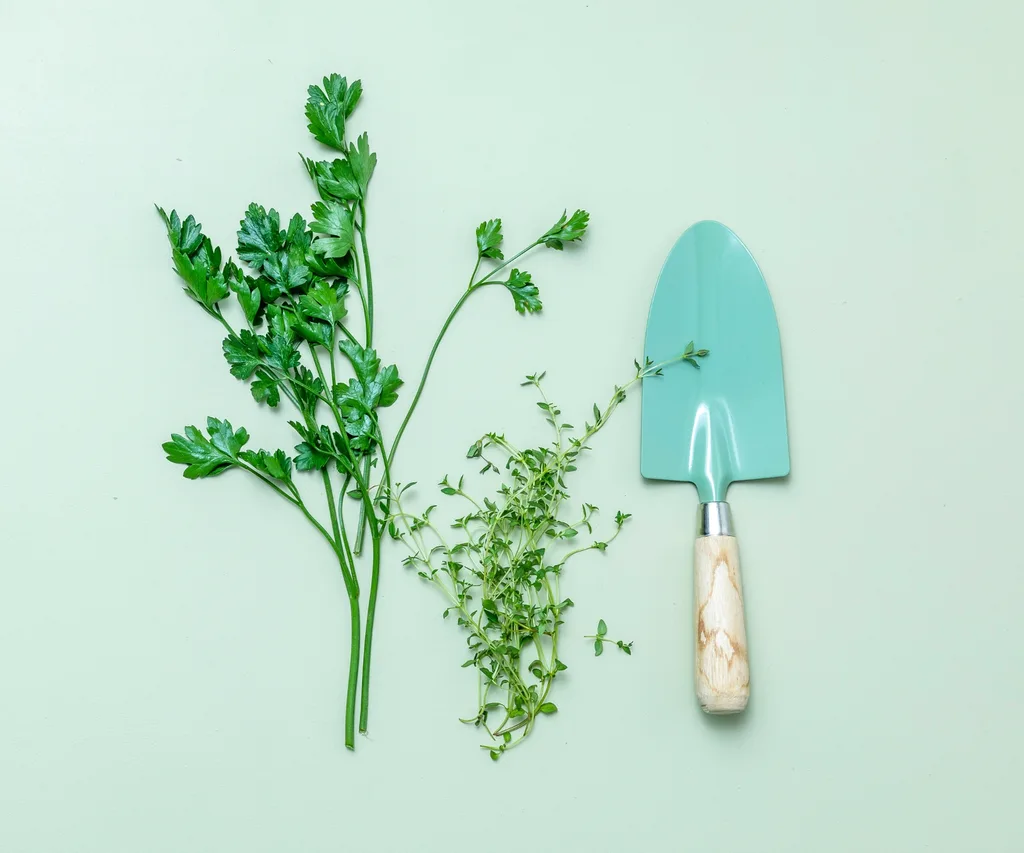
Basil
Bail is the perfect addition to salads, on top of pizzas and in homemade pesto. Plant it in pots and position near a sunny window or plant it straight into the garden. To keep it leafy, pinch off flower buds as they appear and, as it’s a thirsty wee plant, keep it well watered. The perks? It not only tastes great but is antioxidant-rich and has anti-inflammatory properties.
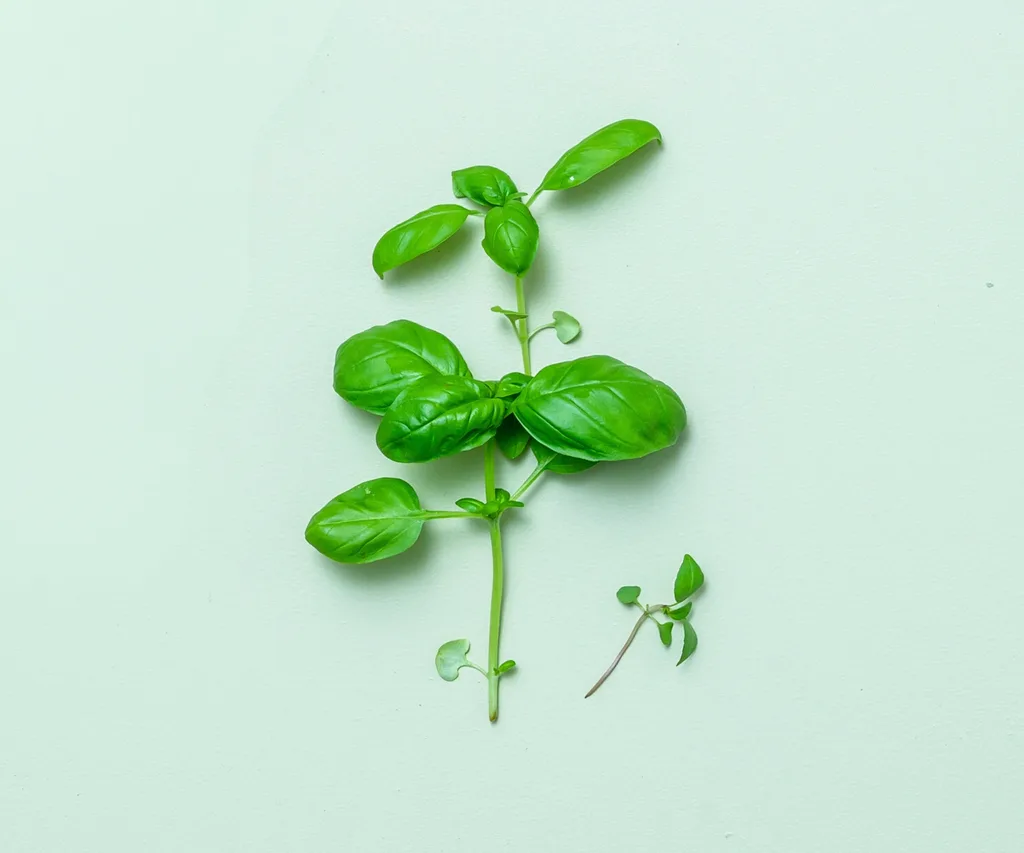
Bug off!
Keep on top of weeds as they create a dense, damp groundcover that slugs and snails love. Steep crushed garlic cloves in boiling water and once cool, spray onto plants to deter aphids, mealybugs, whiteflies and spider mites. Regularly pick creepy crawlies such as slugs, snails and caterpillars off plants. If your plant gets infested with pests, it’s best to get rid of it before the bugs spread to other plants.
Pick the perfect indoor pot
Ensure proper drainage
Whatever pot you choose, it should have drainage holes at the bottom to prevent water from accumulating and causing root rot. If you fall in love with a pot that lacks drainage holes, you can place a layer of gravel at the bottom to help with drainage or use it as a decorative cache pot and place a plastic nursery pot with drainage holes inside.
Match the size
The pot should be appropriately sized for the plant’s current size and its potential growth. A pot that’s too small can constrict root growth, while one that’s too large can hold too much water and lead to root rot.
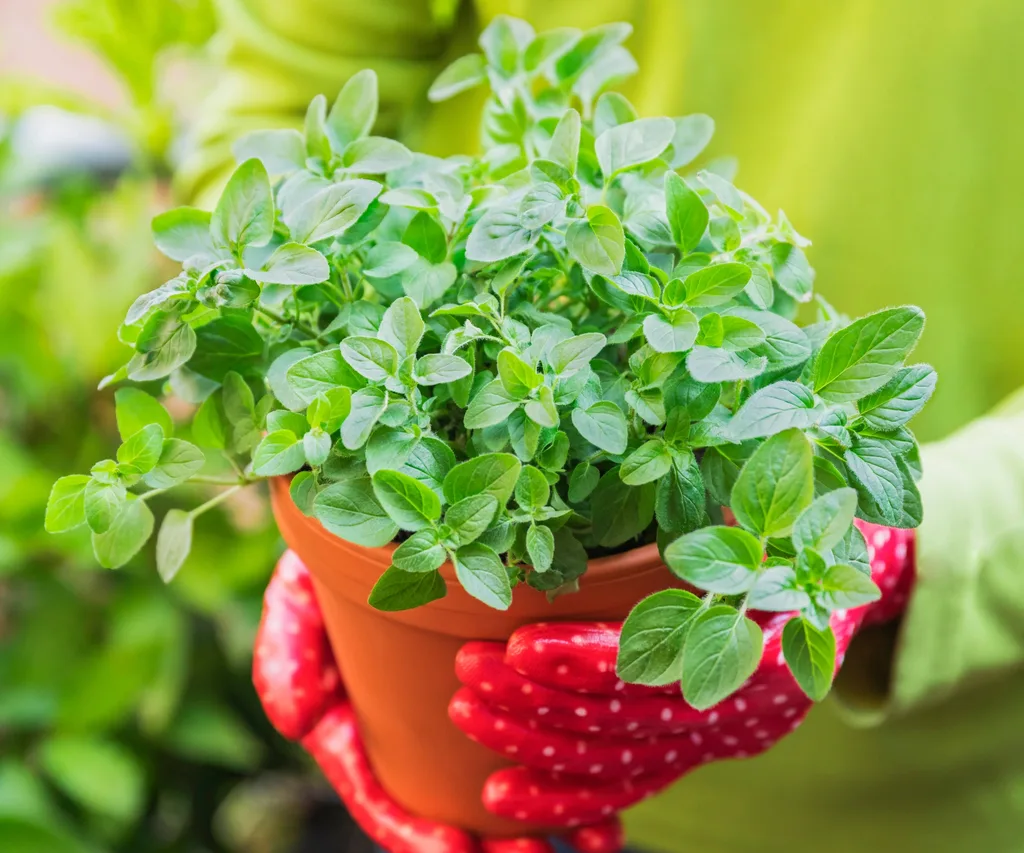
Go for groupies
If you’re growing multiple herbs, consider them together in a single container or arranging them in a visually appealing manner. Grouping herbs with similar water and sunlight requirements can make care and maintenance more manageable.
Reflect your style
Consider the aesthetic of your indoor space. Choose matching pots for a cohesive look, or mix and match different styles and colours for visual interest.
On the move
Consider the mobility of the pots, especially if you plan to move them around to optimise sunlight or airflow. Choose pots with built-in saucers or trays to catch excess water and prevent spills when moving the pots.
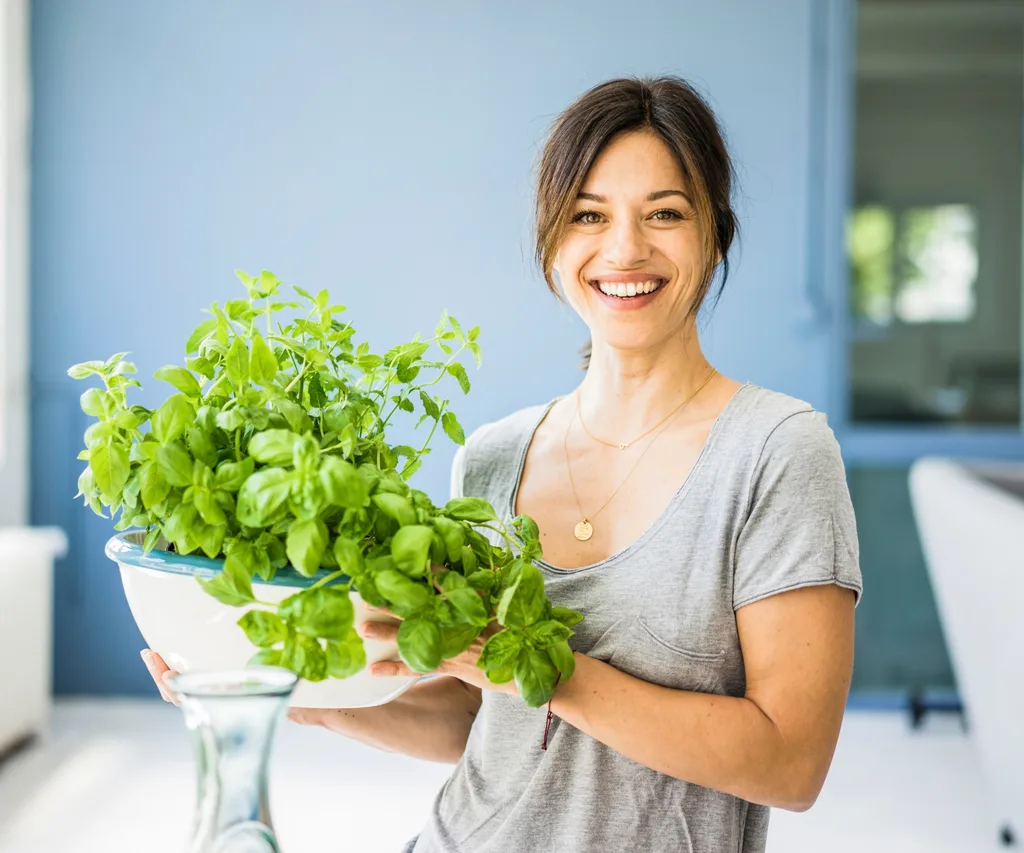
Bon appétit!
Try adding fresh herbs to your summer dishes:
● Sprinkle thyme and basil leaves on gourmet pizzas such as broccolini and mozzarella, mushroom and blue cheese, or a classic pizza margherita.
● Add handfuls of coriander to crunchy salads and all kinds of Thai dishes.
● Mint adds an amazing hit to party punch and cocktails, and plenty of salads too.
● Add flat-leaf parsley to pasta sauces and soups, or use as a garnish.

Top tips
● Keep picking your herbs to encourage more growth and to stop them going to seed.
● If you love Asian food, plant Vietnamese mint, Thai basil and lemongrass.
● Basil, rosemary, mint and lemongrass help to repel mozzies (flies also hate the smell of basil and mint).
● Basil will improve the taste of tomatoes if they are planted close together.
● Bees love herb flowers, especially chives, mint, rosemary, lemon balm, sage and thyme.
● Oregano is not only tasty but it repels cabbage butterflies, so plant near cabbage, broccoli and cauliflower.
